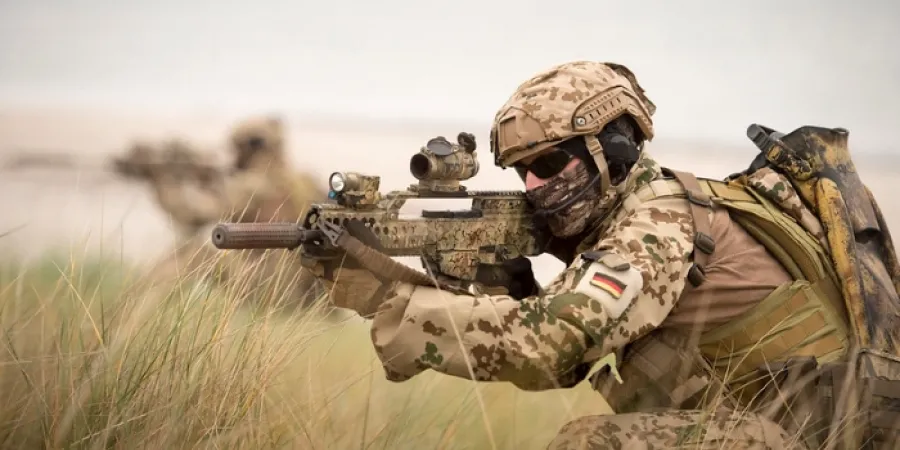Not only in Israel: German assault rifle tender scandal is getting more complicated
Court investigators raided the headquarters of small arms manufacturer C.G. Haenel due to claims by rival company Heckler & Koch of patent infringement
Eyal Boguslavsky
|
19/12/2020
The saga of the assault rifle tender for the German Army continues, and it is becoming complicated. As Israel Defense reported in September, the German Ministry of Defense reversed its decision to award a tender to C.G. Haenel for the supply of about 120,000 MR556 assault rifles, worth more than $290 million, to the German Army, due to claims by rival company Heckler & Koch of patent infringement. This week, the Firearm Blog website reported that investigators from the Düsseldorf Regional Court raided the company's headquarters in the city of Suhl.
Allegedly, the website said, the German Army’s procurement office in the city of Koblenz has viewed videos submitted by Heckler & Koch which show how components from Haenel’s CR223 can be interchanged with those of the HK416. This would seem to support Heckler & Koch’s claims that Haenel’s design infringes on their patents and intellectual property. Representatives from the court and the German Army’s defense technical department were reportedly present during the visit to Haenel’s factory.
The website predicted that for the time being the German Army will continue to use the G36, and it remains unclear whether the tender will be reissued in the foreseeable future. The military is considered likely to be awaiting the US Army’s decision on the Next Generation Squad Weapon program which could shift the small arms paradigm significantly away from small-caliber, high-velocity rounds like 5.56x45mm, and towards magnum rounds like the 6.8 NGSW. The program is being closely watched by a number of militaries whose small arms are nearing the end of their lifecycle, including those of Germany and the UK.
Court investigators raided the headquarters of small arms manufacturer C.G. Haenel due to claims by rival company Heckler & Koch of patent infringement
The saga of the assault rifle tender for the German Army continues, and it is becoming complicated. As Israel Defense reported in September, the German Ministry of Defense reversed its decision to award a tender to C.G. Haenel for the supply of about 120,000 MR556 assault rifles, worth more than $290 million, to the German Army, due to claims by rival company Heckler & Koch of patent infringement. This week, the Firearm Blog website reported that investigators from the Düsseldorf Regional Court raided the company's headquarters in the city of Suhl.
Allegedly, the website said, the German Army’s procurement office in the city of Koblenz has viewed videos submitted by Heckler & Koch which show how components from Haenel’s CR223 can be interchanged with those of the HK416. This would seem to support Heckler & Koch’s claims that Haenel’s design infringes on their patents and intellectual property. Representatives from the court and the German Army’s defense technical department were reportedly present during the visit to Haenel’s factory.
The website predicted that for the time being the German Army will continue to use the G36, and it remains unclear whether the tender will be reissued in the foreseeable future. The military is considered likely to be awaiting the US Army’s decision on the Next Generation Squad Weapon program which could shift the small arms paradigm significantly away from small-caliber, high-velocity rounds like 5.56x45mm, and towards magnum rounds like the 6.8 NGSW. The program is being closely watched by a number of militaries whose small arms are nearing the end of their lifecycle, including those of Germany and the UK.



